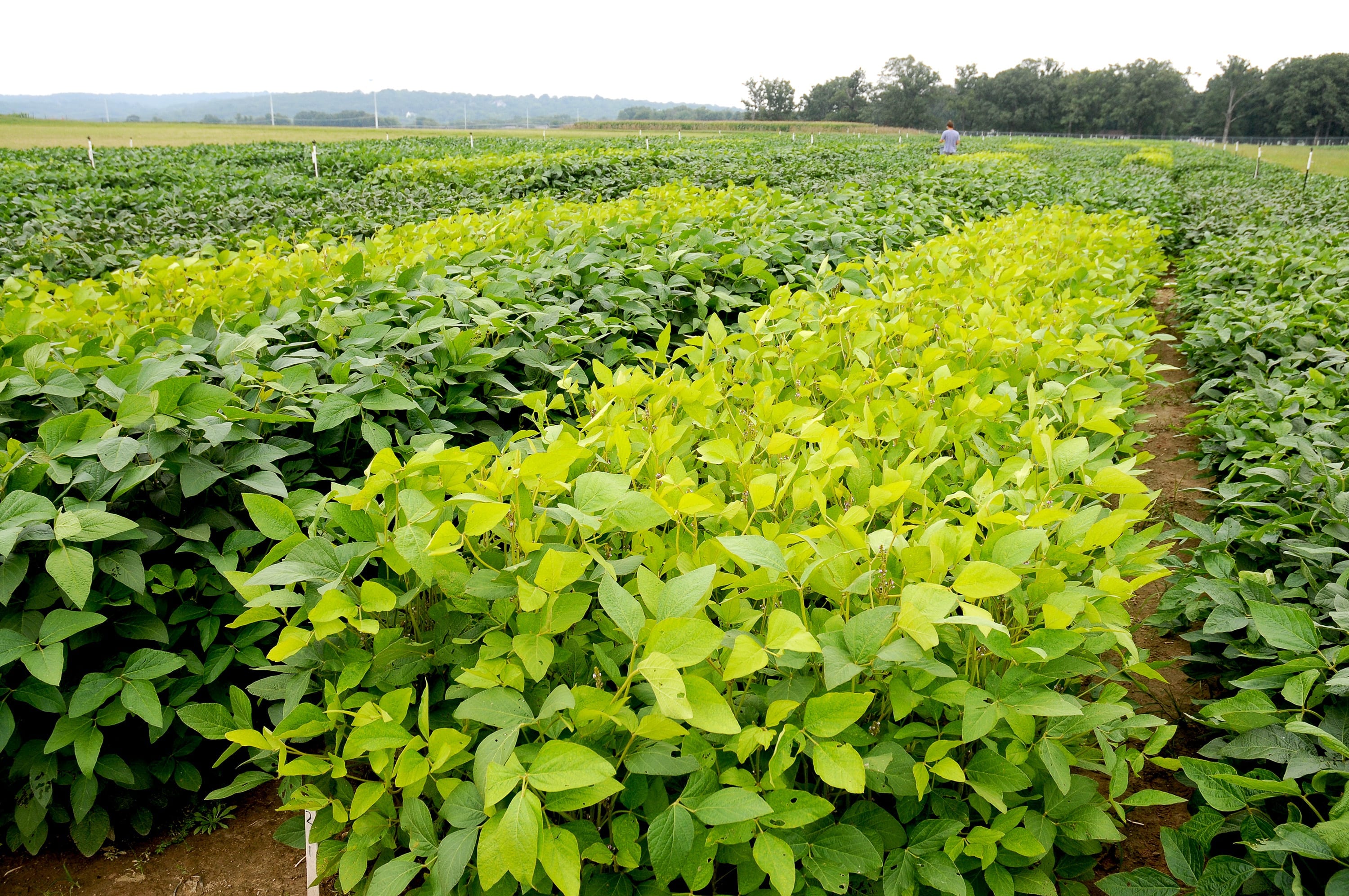Genetic Discovery May Improve Soybean Drought Tolerance

The Problem
Every year, drought impacts agricultural yield in some part of the world. Soybean, one of the most widely-grown crops on earth, is no exception. When drought conditions strike and yield falls, growers suffer economically, and the resources of food-insecure communities are stretched even further.
The Research
Recent research conducted by the University of Arkansas System Division of Agriculture has identified genetic markers in soybeans that could help improve drought tolerance.
Working with Dr. Larry Purcell, Avjinder Kaler used genome-wide association mapping to locate alleles associated with slow canopy wilting. Slow canopy wilting is a trait that has been directly related to yield improvement under drought conditions.
Slow canopy wilting also has high heritability and is a relatively inexpensive trait for drought tolerance. Transferring those alleles to high-yielding, drought-sensitive cultivars using non-transgenic breeding methods, can help improve soybean drought tolerance.
The first crosses to move the slow-wilting alleles to a high-yield line were initiated in 2018.
The Bottom Line
As environmental changes and growing populations make drought an increasingly common reality in farming, Division of Agriculture researchers are helping growers around the world cope and thrive in their efforts to feed the world.
The Researcher

Avjinder Kaler
Postdoctoral associate in the Department of Crop, Soil and Environmental Sciences since 2017.
Kaler earned a bachelor of science degree with honors in agriculture from Punjab Agricultural University in India in 2011, and a master of science degree in agronomy from the University of Florida in 2013. He completed his Ph.D. in crop science at the University of Arkansas in 2017.
Research interests include quantitative genetics and genomics, plant breeding, crop physiology and more.
»
